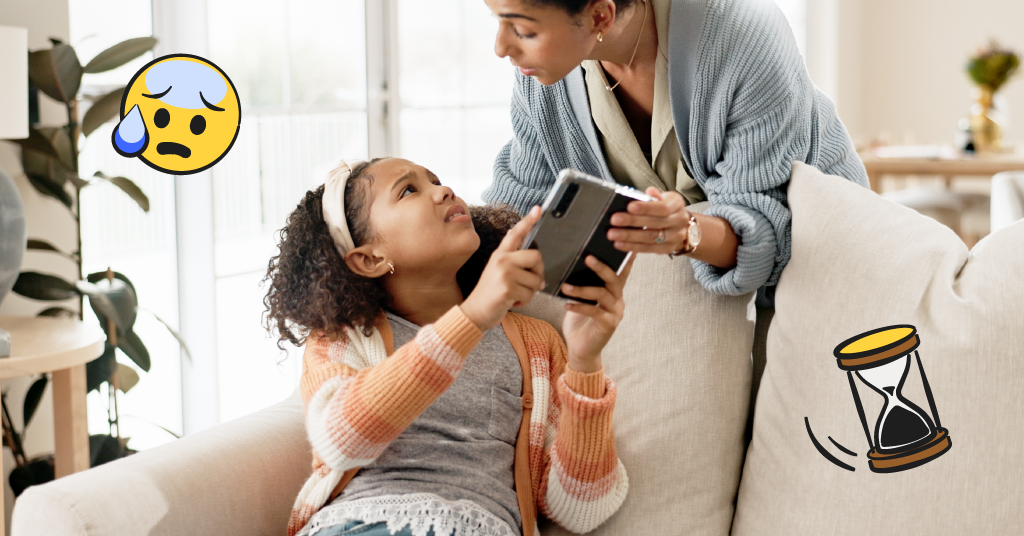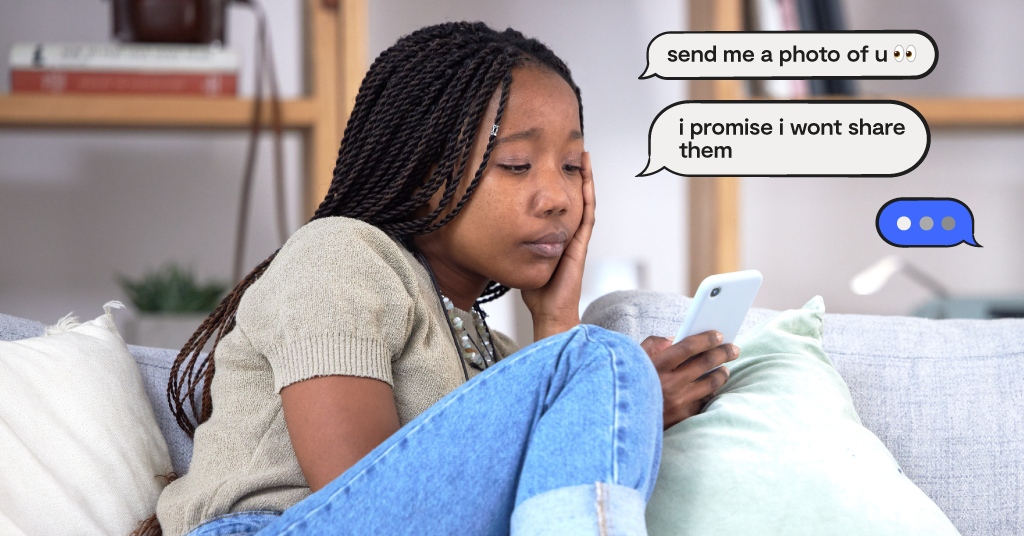The battle over screen time is a common struggle for tons of families, but for those who feel their child is experiencing an addiction to screens, it can be very distressing. Technology is such an integral part of everyday life for most kids, so it can be a slippery slope toward developing unhealthy habits around screens.
If you’ve found yourself concerned about your child’s screen time addiction, you’re certainly not alone. We hear stories in our Facebook group every day from parents who are navigating screen time addiction with their children. This blog post will help you recognize addiction so you can learn how to fight it.
What Screen Time Addiction Looks Like
Nowadays, it’s not uncommon for kids and teens to spend a lot of time on screens. Studies show that teens are spending an average of 9 hours a day on them, from phones and laptops to video game consoles and tablets. When it comes to social media and gaming, these platforms are literally designed to be addictive and trigger dopamine releases in the brain, keeping kids hooked for long periods of time.
But a screen time addiction is not just about how many hours a child spends online, but about their relationship with screens. If a teen has grown dependent on technology to the point where it disrupts their ability to live a balanced and healthy life, then this is what experts would call “problematic internet media use.”
Here are some signs your child may have developed a dependency on screens:
- Loss of interest in other activities
- Falling grades
- Isolation
- Aggressive behavior
- Mood swings
- Increased conflict with family members
- Withdrawal symptoms
- Hygiene concerns
How to Break a Screen Time Addiction
Enforce limits
While you could just go cold turkey and take all screens away from your child, many experts suggest limiting it to shorter time frames instead. This prevents technology from becoming the “forbidden fruit” that they want even more. Additionally, it’s helpful for kids who have to use screens for school, jobs, sports, etc. For many families, completely cutting our screens is simply not feasible. And once kids grow up, they’ll be on their own with no limits at all. It’s our job as parents to help prepare them for a life that will use screens in a healthy way.
Tech alternatives
Once those screen time limits are in place, it’s helpful to have alternative activities ready and on hand. Experts say it’s better to put the addictive thing out of sight and out of mind. So once the technology is put away, find some activities, hobbies, or projects for them to focus on instead.
Make it a team effort
Sometimes it can feel like it’s you versus your kid in the fight against screens. But instead, try to think of it as you and your kid versus the addictive technology. Have open conversations with them about why it’s important to limit screen time and that you’re there to support them to live a happy, healthy life.
Modeling healthy screen time is another way you can break their screen time addiction as a team. Whenever they need to put their tech away, consider putting yours away as well. Or have a dedicated day or afternoon where everyone in the family is screen-free together.
Use tools to your advantage
The irony is not lost on that using technology to help limit technology has proven to be a successful strategy for tons of families. It’s one thing to tell your child that their 20 minutes of tablet time is up, it’s another for the tablet to lock on its own right when you need it to.
How Bark Can Help You Battle Screen Time
We know how important it is to foster healthy relationships between your kids and tech. That’s why we have a variety of parental control products aimed at helping you do just that. Our web filtering can help you set screen time limits, block apps and sites, and pause the internet when it’s time for that screen break. We also offer content monitoring so that you can receive alerts for inappropriate content your child may come across while online. Check out our products page to find out how Bark can support your family in the digital age.
Read more
Bark helps families manage and protect their children’s digital lives.






